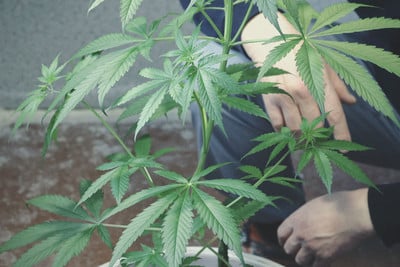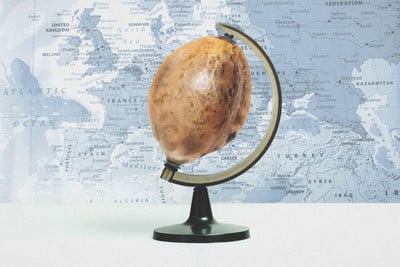.

Medical vs Recreational Marijuana: What’s the Difference?
Some strains of cannabis treat illnesses and others are great for getting high, right? Actually, the differences are much more nuanced than that, and have more to do with the user than the strain. Whether people use cannabis for medical or recreational purposes, it seems that a more balanced cannabinoid profile is becoming increasingly popular.
Contents:
There’s much talk of “medical marijuana” and “recreational cannabis” in the cannabis space. In the US and Canada, different dispensaries exist to service these different needs, and sometimes even offer different types of cannabis, at different prices.
But, really, what are the differences? Is medical cannabis distinct from recreational marijuana or not? Do some types of weed bear medical significance while others only get you high? Given how little we know about the nuances between strains, and the ways in which cannabis may or may not treat certain illnesses, it seems unlikely that we can clearly define which strains should be classed as “medical” versus “recreational”.
Currently, the distinction between these types of cannabis boils mainly down to two things.
First, legality. In many places around the world, medical cannabis is legal, while recreational is not. So there is an obvious distinction in accessibility. Second, it refers to market distinctions, which are largely based on the US market, and to a lesser extent, Canada’s.
What Does Medical Marijuana Mean?
While people readily use the term “medical marijuana”, there is no true consensus on what makes a certain type of cannabis medically effective. In other words, medical marijuana is ultimately that which is used to relieve symptoms associated with a medical condition. The type of product is secondary to the purpose.
Furthermore, general understandings of cannabis’ medical potential have shifted. In the recent past, cannabis was considered to have greater medical efficacy if it had a higher THC content. Essentially, the thinking was, “the stronger, the better”. However, as more research is conducted into cannabis and its potential medical uses, it is becoming clearer that a healthy balance of cannabinoids seems to offer the most benefits to those who consider themselves medical users.
So, in general terms, medical marijuana is likely to refer to cannabis strains that have a close THC to CBD ratio. More and more, other cannabinoids, such as CBG and CBN, are also being actively considered when growing and breeding strains.
The “entourage effect” is the name given to the beneficial interaction between different cannabinoids, terpenes, and flavonoids when consumed together. You often hear about high-THC weed or high-CBD cannabis, but they alone are only a small part of the story. There is mounting evidence that strains harnessing the entourage effect offer the most holistic effects, though we still are a ways off from fully understanding the intricacies of this phenomenon.

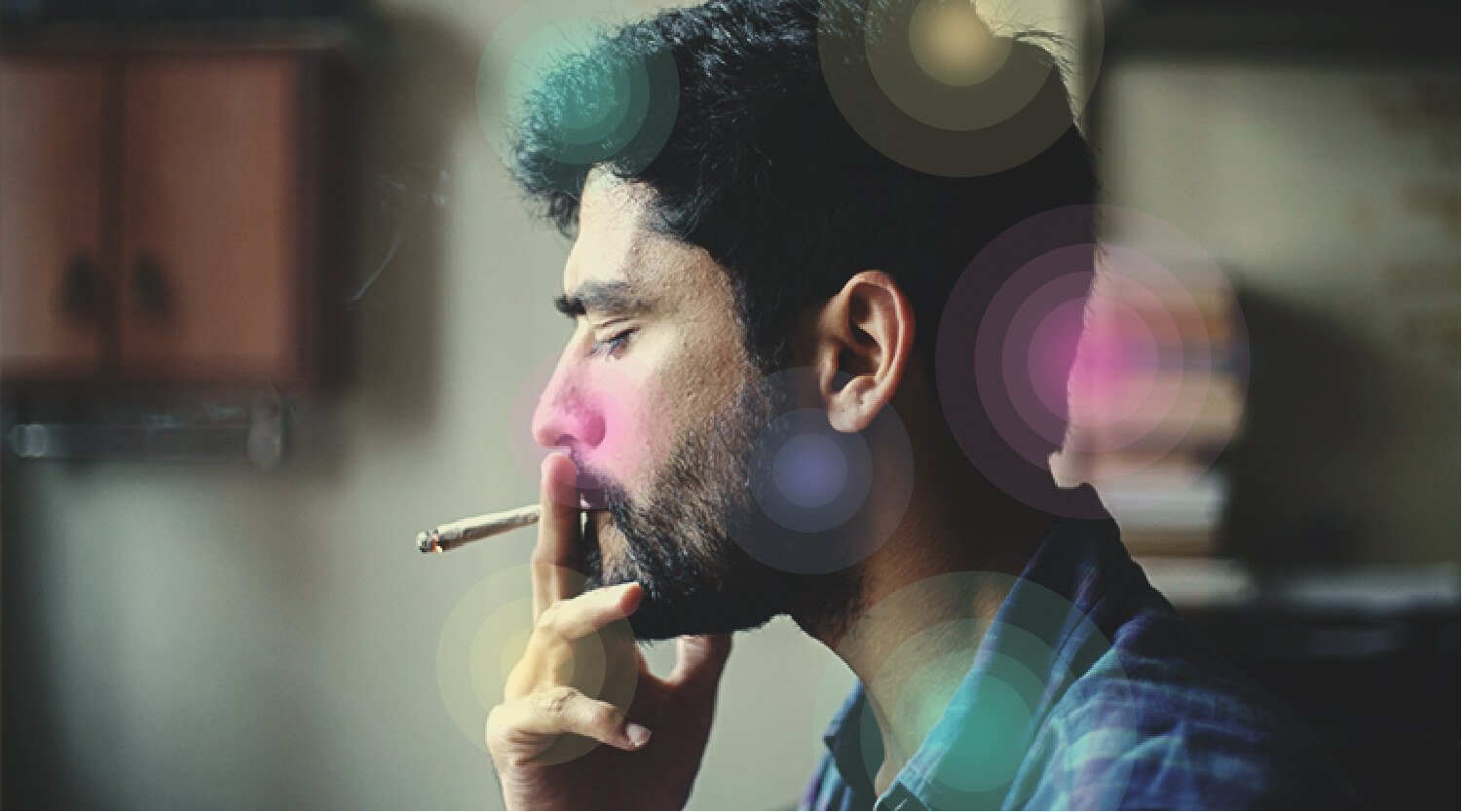
What Does Recreational Cannabis Mean?
Recreational cannabis is that which is used to get high, rather than to try and influence an ailment.
On a superficial level, recreational cannabis tends to have high levels of THC and significantly lower levels of CBD. That being said, this is an incredibly generalised take on the distinction between the two types.
Recreational cannabis is more likely to produce powerful effects, and effects that can more easily tip into unpleasant if too much is consumed.
But Is There Really a Difference?
We are in the early days of understanding how cannabis might affect various illnesses. While there are some distinctions around medical cannabis and recreational weed in places where both are legal, these are tenuous and ever-changing.
If somebody finds that THC-rich cannabis helps them, it seems odd to define them as a recreational user if they explicitly use it for medical purposes. What’s more, while users in certain countries or states may have access to sanctioned and prescribed medical marijuana, in many nations, patients still have to get their cannabis illegally, as it continues to be prohibited. So intermittently defining them as “medical” or “recreational” users depending on the concentration of cannabinoids in their weed is probably not the right way to go about things.
Likewise, many recreational smokers are now moving toward more balanced strains that offer softer effects. Just because they don’t want to get as high as possible doesn’t mean they are “medical users”.
Finally, many users fall into both categories, making identifying a concrete distinction between the two even more difficult.
Medical Marijuana vs Recreational Cannabis
All that being said, below we will outline the general differences between medical and recreational cannabis based on how they’re sold in the US. Where there is a market for both, there are practical distinctions.
Potency
These days, medical cannabis tends to be less potent than recreational cannabis. Potency here refers to THC content specifically, rather than overall cannabinoid content. In fact, recreational cannabis is likely to have lower concentrations of other cannabinoids than medical cannabis.
Medical cannabis, on the other hand, often has higher levels of CBD compared to THC. There is much research looking into the potential medical effects of CBD and other cannabinoids. While exact answers may still be just out of reach, the findings so far look very promising.
Effects
High-THC strains of cannabis have much stronger effects compared to balanced ones, and this can make them less appropriate for those who need or desire regular treatment. If somebody uses cannabis all day, every day to treat a condition, consuming incredibly powerful weed may inhibit their ability to live a normal life. Subtler, more balanced cannabis, on the other hand, can fit into everyday functioning.
It must be noted here that this is where user preference can conflict with generally understood distinctions.
While, in general, it seems that balanced, moderate effects are most likely to be medically effective, this is not set in stone. While one user may find that a slight high and relaxation helps alleviate their problems, another may find the potent effects of a THC-rich sativa, for example, to offer the best treatment.
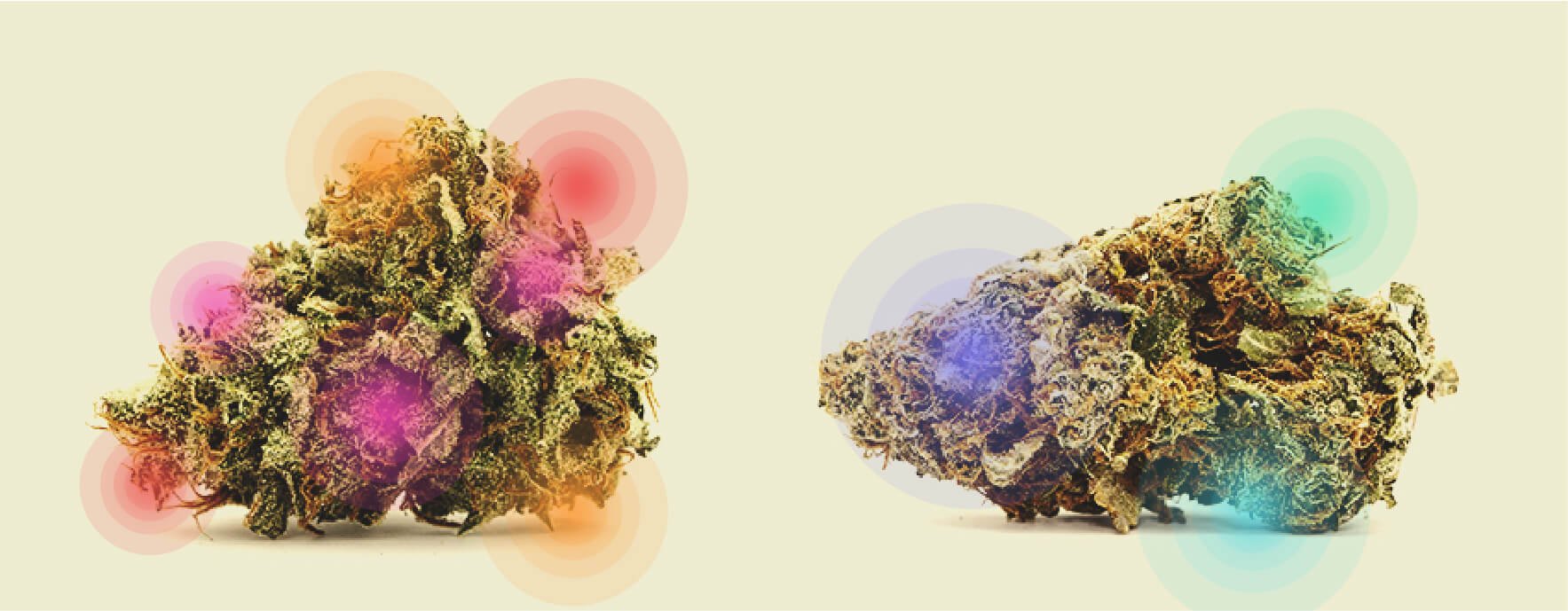
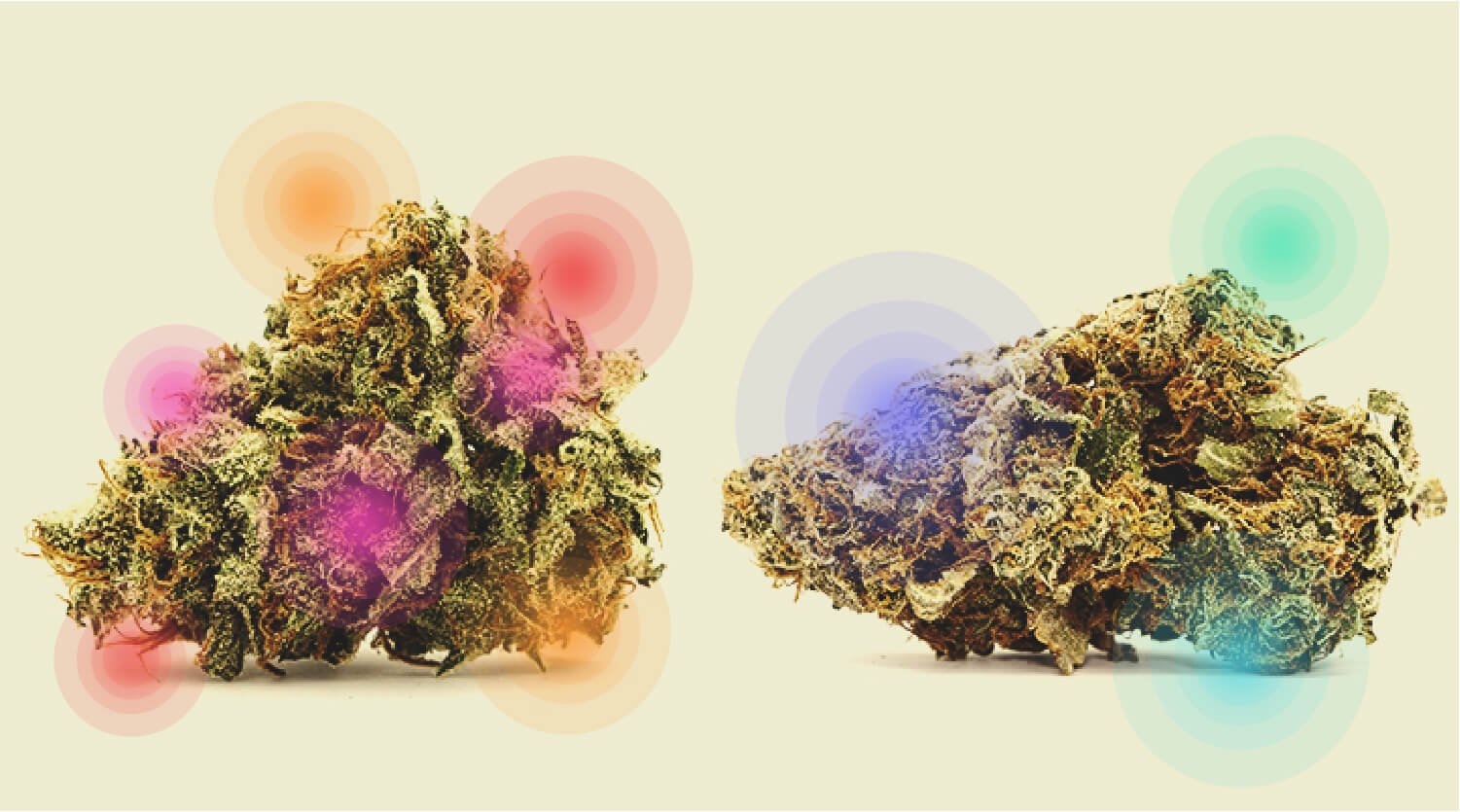
Quality
There are some instances in which cannabis cultivated for medical purposes is found to be of better quality. Whether this means it is subject to less pesticide use, grown under more stringent conditions, subject to more quality control, or just more carefully grown, cannabis grown for medical purposes is likely to be of high quality as it's highly regulated.
But so is good recreational cannabis. Of course, there are breeders and dispensaries who profit off poor-quality weed, as they are able to get away with it due to laxer regulations—though not that lax. Yet you find poor-quality alcohol and good-quality alcohol, and buying it is not a guessing game. So if you’re after high-quality recreational cannabis, it’s perfectly accessible, just perhaps a little more expensive.
In fact, the profitability of quality cannabis means that the good stuff is often of exceptionally fine quality. A medical user who knows what they want will not find themselves disappointed when purchasing cannabis from a good recreational dispensary—and they will likely have more choice.
Variety
Due to the limited market definitions of what constitutes medical marijuana, users are likely to find less variety in medical dispensaries compared to recreational ones. For example, you’re far less likely to come across “33% THC powerhouse with elevating effects that will take you to space!” in a medical environment compared to a recreational one.
However, in recreational dispensaries, you are likely to come across more chill strains with balanced ratios and holistic effects. With the rise of CBD supplements, these types of cannabis strains are becoming more sought-after outside of exclusively medical environments, and it’s likely their accessibility will continue to increase.
Consumption
Method of consumption is one area where there tends to be a clear distinction between medical and recreational cannabis use. Even though any user may consume cannabis in whichever way they feel is most suitable, those who consider themselves medical users are more likely to harness less traditional methods. Whereas smoking flower and hashish in joints, spliffs, and bowls is still the most popular method for recreational users, medical users err more toward concentrates, tinctures, and edibles.
A reason for this is that many medical users may not have a history of smoking, and therefore feel no attachment to the ceremony of these more traditional methods. Likewise, we all know that smoking is bad for our bodies, so depending on what your medical ailment is, inhaling combusted materials might be counterproductive!


Cultivation
There aren’t really any concrete differences between growing medical marijuana and recreational cannabis. Or rather, there aren’t any differences between growing medical marijuana and good-quality recreational cannabis.
In either situation you’re going to want:
- High-quality seeds
- Organic methods (to keep use of chemicals to a minimum)
- Controlled indoor environment or optimal outdoor setup
One major difference is that medical marijuana is almost always going to be grown indoors, as this offers far greater control over the final product. With careful control over light and temperature, different expressions of cannabinoids and terpenes can be achieved. If you know what you’re after, this can be very helpful.
But really, if you’re a recreational user, the same can be said. However, if you’re in a suitable environment, planting seeds outside during summer and getting a huge harvest of potent (but less predictable) bud is more likely to appeal to the recreational user over the medical one.
Ultimately, the main distinction to consider in terms of cultivation is a legal one. In some places, those who are officially classed as medical cannabis users may legally cultivate their own cannabis, while for others it is still prohibited. In this case, though cultivation methods may not differ, the differing realities of medical versus recreational cultivators may be stark.
Accessibility
Generally, medical marijuana is more accessible than recreational marijuana. For instance, in the US, more states have legalized medical marijuana than recreational, and you only need to be 18, rather than 21, to qualify. That being said, access to medical marijuana involves being signed off by a doctor, whereas anyone of age can buy recreational cannabis (where it is legal).
By and large, medical marijuana tends to be less expensive as it is tax exempt. So for those on lower incomes, this can make access to cannabis a much more affordable option. For those who find medical weed to really help, this legal distinction should not be overlooked.
In some countries, medical marijuana is legal, whereas recreational cannabis is not. In this instance, medical cannabis is obviously going to be more (legally) accessible. However, the reality might be slightly different. If it is highly regulated, the truth is that illegally buying cannabis might be easier than getting it prescribed by a doctor.
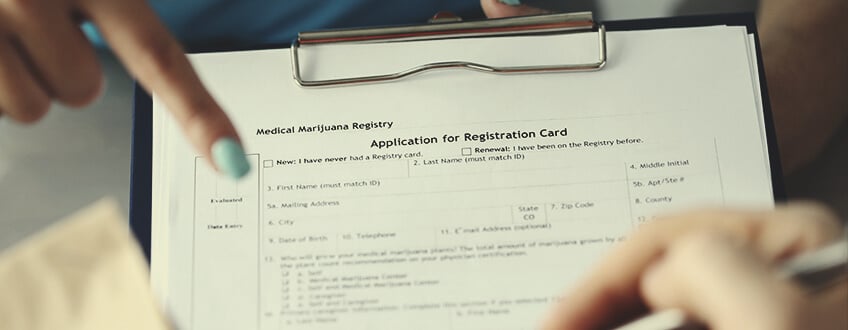
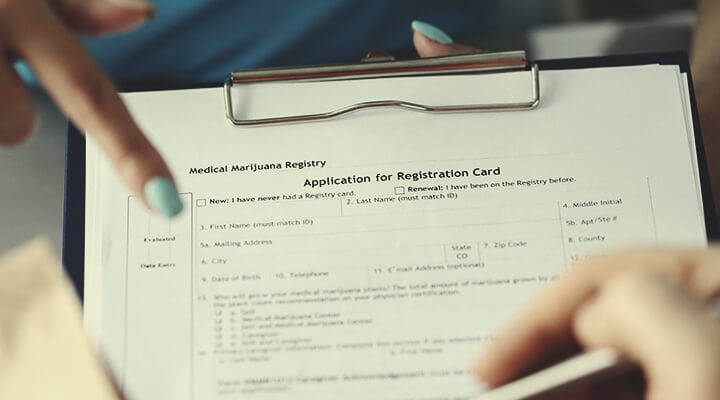
Does Your Body Know the Difference Between Medical and Recreational Marijuana?
As there is no concrete difference between medical and recreational cannabis, your body does not know the difference. However, your body does feel the different effects of different types of cannabis and consumption methods, and individual users may find some of these to be medically viable, and others not.
Which Is Better: Recreational or Medical Cannabis?
This depends on the user. If your goal is to get really high, then high-THC “recreational” cannabis is likely to suit your needs. If, however, you want to attempt to quell some ailment while retaining cognisance, then a low-THC, high-CBD “medical” strain may suit your needs more.
When assessing whether cannabis use is medical or recreational, it’s more important to look at the user’s intention than the strain or product itself. Don’t get too hung up on preconceived ideas and distinctions. They are, on the whole, poorly understood market terms.
- The "Entourage Effect": Terpenes Coupled with Cannabinoids for the Treatment of Mood Disorders and Anxiety Disorders - PubMed https://pubmed.ncbi.nlm.nih.gov
- Use of cannabidiol in anxiety and anxiety-related disorders - PubMed https://pubmed.ncbi.nlm.nih.gov
- https://www.sciencedirect.com/science/article/pii/B9780128007563001150


























